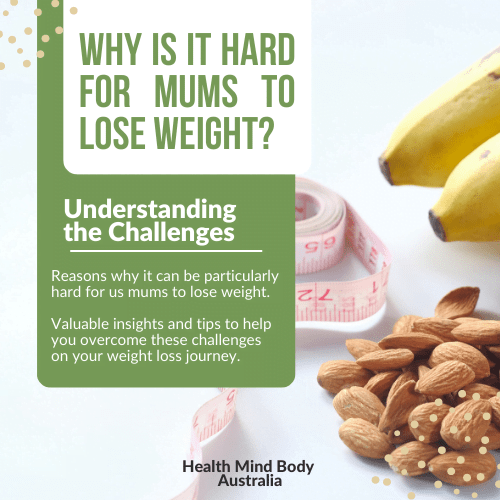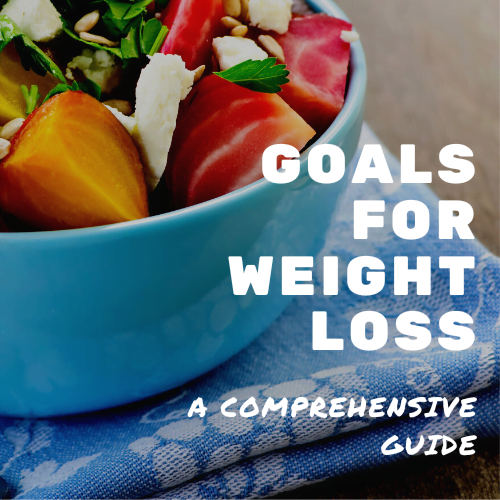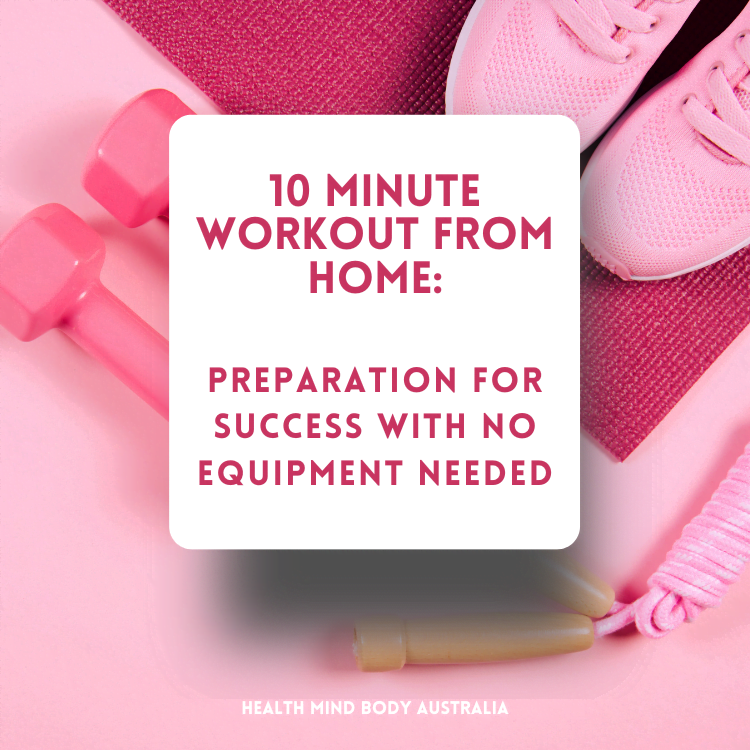Demystifying Diets: A Comprehensive Comparison of Keto, Paleo, and Mediterranean Diets
In a society filled with various health and wellness fads, choosing the right diet can be a daunting task.
With a myriad of options available, it’s crucial to make an informed decision that aligns with your personal health goals and lifestyle.
Three popular diet plans that often take the spotlight are:
- Keto,
- Paleo, and
- Mediterranean
In this comprehensive comparison, we will delve into the key features, benefits, and potential drawbacks of each of these Keto Paleo and Mediterranean diets to help you make an educated choice.
The Ketogenic Diet: Unveiling the Low-Carb Lifestyle
The ketogenic diet, often referred to as the keto diet, is a dietary approach that has captured significant attention due to its potential benefits for weight loss and various health conditions.
The ketogenic diet, commonly known as the keto diet, has gained immense popularity in recent years for its potential to aid in weight loss and manage certain health conditions.
The fundamental principle of this diet is to drastically reduce carbohydrate intake while increasing fat consumption.
This shift in macronutrient ratios pushes the body into a state of ketosis, where it primarily relies on fat for fuel instead of carbohydrates.
Understanding the core principles and mechanisms of the keto diet can provide valuable insights into how it works and whether it might be suitable for your health goals.
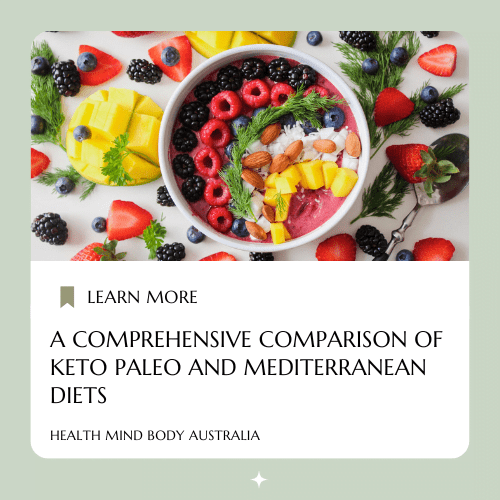
The Science Behind Ketosis: Fueling the Body with Fat
At the heart of the ketogenic diet lies a metabolic process known as ketosis.
Normally, your body primarily relies on carbohydrates as its main source of energy.
Carbohydrates are broken down into glucose, which is used to fuel various bodily functions.
However, in the absence of sufficient carbohydrates, the body seeks an alternative source of energy.
When carbohydrate intake is drastically reduced, as is the case with the keto diet, the liver begins to produce molecules called ketones.
Ketones are produced from fat breakdown and serve as an alternative fuel source for the body, particularly for the brain and other organs.
This metabolic shift from using glucose to ketones is what defines ketosis.
Key Features of the Keto Diet
Carbohydrate Intake
One of the defining features of the keto diet is its strict limitation of carbohydrate intake.
Typically, when following the keto diet you aim to consume only around 20 to 50 grams of carbohydrates per day.
This restriction is designed to keep the body in a state of ketosis, where ketones become the primary energy source.
Emphasis on Healthy Fats
With carbohydrates significantly reduced, the keto diet places a high emphasis on consuming healthy fats.
Sources of healthy fats include avocados, nuts, seeds, coconut oil, and olive oil.
These fats provide the necessary calories and nutrients to sustain energy levels and support bodily functions.
Moderate Protein Intake
Protein intake is moderate on the keto diet.
Consuming too much protein can potentially trigger gluconeogenesis, a process where excess protein is converted into glucose, which could hinder the body’s ability to maintain ketosis.
Benefits of the Keto Diet
Weight Loss
By shifting the body’s energy source from glucose to fat, the keto diet can lead to weight loss.
When the body burns fat for fuel, it uses stored fat reserves, contributing to fat loss.
Improved Blood Sugar Control
The keto diet may help improve insulin sensitivity and blood sugar control, making it a potential option for individuals with type 2 diabetes or prediabetes.
Potential for Increased Energy Levels
Some individuals report improved energy levels on the keto diet, as the body becomes efficient at utilising fat for energy.
Drawbacks and Considerations
Keto Flu
As the body adapts to ketosis, you may experience side effects collectively referred to as the “keto flu.”
These can include fatigue, irritability, headaches, and nausea.
These symptoms are usually temporary and subside as the body adjusts.
Nutrient Deficiencies
The strict limitations on certain food groups can lead to potential nutrient deficiencies.
Carbohydrate-rich foods, such as fruits and whole grains, are important sources of vitamins, minerals, and fibre that should be limited on the keto diet.
Sustainability
The keto diet’s extreme carbohydrate restriction can be challenging to maintain over the long term.
It may also limit social and dining-out experiences due to its strict guidelines.
A Personalised Approach
The ketogenic diet’s unique approach to shifting the body’s metabolism offers potential benefits for weight loss and specific health conditions.
However, it requires careful planning and consideration of your individual preferences and needs.
Consulting a healthcare professional or registered dietitian is essential before embarking on the keto diet, especially for those with underlying health conditions.
The Paleo Diet: Channeling Ancestral Eating Patterns
The paleolithic, or paleo, diet is a nutrition approach that seeks to mimic the dietary patterns of our ancient ancestors during the Paleolithic era.
By adopting this diet, advocates believe that humans can achieve better health by consuming foods that our bodies are genetically adapted to process.
Exploring the principles, rationale, and considerations of the paleo diet can shed light on its potential benefits and limitations.
Foundations in Ancestral Eating
The paleo diet is grounded in the idea that human genetics and physiology were shaped by the dietary habits of our pre-agricultural ancestors.
It proposes that your body is better suited to consume foods that were available before the advent of modern agriculture.
The paleo diet aims to replicate this ancestral eating pattern to promote optimal health.
Key Features of the Paleo Diet
Emphasis on Whole Foods
The paleo diet places a strong emphasis on whole, unprocessed foods.
This includes lean proteins such as grass-fed meats, poultry, and fish.
These protein sources are free from antibiotics and hormones, which are common in conventional meat production.
Elimination of Grains and Legumes
Grains and legumes, which became staples after the agricultural revolution, are excluded from the paleo diet.
This means avoiding foods like wheat, rice, beans, and lentils.
Dairy and Processed Foods Exclusion
Dairy products are also avoided due to the belief that our ancestors did not consume dairy.
Additionally, processed foods, refined sugars, and artificial additives are eliminated from the diet.
Focus on Nutrient Density
The paleo diet encourages the consumption of nutrient-dense foods such as fruits, vegetables, nuts, and seeds.
These foods are rich in vitamins, minerals, and antioxidants that support overall health.
Benefits of the Paleo Diet
Weight Management
The emphasis on whole foods and the elimination of processed foods and sugars can lead to weight loss for some individuals.
Improved Digestion
The elimination of grains and legumes, which can be hard to digest for some, might lead to improved digestion in certain individuals.
Blood Sugar Control
By avoiding refined sugars and processed carbohydrates, the paleo diet may help regulate blood sugar levels.
Drawbacks and Considerations
Nutritional Imbalance
The exclusion of entire food groups like grains and legumes can potentially lead to nutrient deficiencies if not carefully planned.
Calcium, vitamin D, and certain B vitamins may be lacking without dairy and grains.
Practicality and Flexibility
Adhering to the paleo diet can be challenging, especially in modern settings where processed foods are prevalent.
Additionally, strict adherence can limit dining-out options and social experiences.
Evolutionary Context Debate
Critics argue that our ancestors’ diets were diverse and varied based on geographic location and availability.
This makes it challenging to create a universally applicable “ancestral” diet plan.
A Balanced Approach
The paleo diet seeks to embrace the dietary habits of our ancient ancestors by focusing on whole, unprocessed foods.
While its emphasis on nutrient-dense foods and elimination of refined sugars and processed foods can offer health benefits, the exclusion of entire food groups and potential nutritional imbalances should be considered.
As you explore the paleo diet, keep in mind that it is just one approach to healthy eating.
Consulting with healthcare professionals or registered dietitians can help you determine whether the paleo diet aligns with your individual health goals and needs.
Remember that a well-rounded diet encompasses a variety of nutrient sources, and making informed choices based on the best available evidence is key to achieving optimal well-being.
The Mediterranean Diet: Nourishing with a Mediterranean Flair
The Mediterranean diet is not just a diet; it’s a way of life inspired by the traditional eating patterns of countries bordering the Mediterranean Sea.
With its focus on whole foods, heart-healthy fats, and a colourful array of nutrient-dense ingredients, the Mediterranean diet has captured the world’s attention as a model for promoting health and longevity.
Harvesting Nutrients from Nature
At the core of the Mediterranean diet is the belief in nourishing the body with fresh, unprocessed foods that are abundant in nature.
This approach not only offers a wide spectrum of nutrients but also reflects the cultural values of shared meals and a balanced lifestyle.
Key Features of the Mediterranean Diet
Plant-Based Emphasis
The Mediterranean diet places a strong emphasis on plant-based foods, including fruits, vegetables, whole grains, legumes, nuts, and seeds.
These foods provide a rich source of vitamins, minerals, antioxidants, and dietary fibre.
Healthy Fats
Unlike many other diets, the Mediterranean diet encourages the consumption of healthy fats.
Olive oil takes the centre stage as the primary source of fat.
This oil is rich in monounsaturated fats, which have been linked to heart health and reduced inflammation.
Moderate Proteins
Lean proteins play a vital role in the Mediterranean diet, with an emphasis on fish, poultry, and legumes.
Fish, particularly fatty fish like salmon and sardines, are rich in omega-3 fatty acids that offer cardiovascular benefits and support brain health.
Benefits of the Mediterranean Diet
Reduced Risk of Heart Disease
The Mediterranean diet has been extensively studied for its cardiovascular benefits.
The combination of healthy fats, antioxidants, and anti-inflammatory properties in this diet can contribute to a lower risk of heart disease.
Improved Cognitive Function
The inclusion of nutrient-dense foods, such as fruits, vegetables, and omega-3 fatty acids from fish, may support brain health and cognitive function.
Long-Term Sustainability
The Mediterranean diet is characterised by its diversity and balance, making it a sustainable eating pattern that can be adopted for the long-term.
Drawbacks and Considerations
Learning Curve
For individuals accustomed to Western dietary habits, transitioning to the Mediterranean diet might require a shift in mindset and meal planning.
The focus on fresh, whole ingredients and cooking from scratch could be challenging initially.
Individual Variation
While the Mediterranean diet provides a framework, it’s important to customise it to your personal preferences and dietary needs.
Individual responses to certain foods may vary.
Limited Red Meat
The Mediterranean diet recommends limiting red meat consumption in favour of lean protein sources.
This could be a drawback for individuals who prefer red meat as a significant part of their diet.
Cultivating a Wholesome Lifestyle
The Mediterranean diet transcends the concept of dieting and delves into the realm of a holistic lifestyle.
Its emphasis on nutrient-dense foods, heart-healthy fats, and a balanced approach to eating resonates with the cultural traditions of the Mediterranean region.
As you consider adopting the Mediterranean diet, remember that it’s not just about the foods you eat, but also about embracing the spirit of sharing meals, savouring flavours, and nourishing your body in harmony with nature.
Before making any significant dietary changes, consult with healthcare professionals or registered dietitians who can guide you on how to tailor the Mediterranean diet to your specific health goals and needs.
With its potential to promote heart health, enhance cognitive function, and provide a sustainable approach to eating, the Mediterranean diet offers a roadmap to a healthier and more vibrant life.
Choosing the Right Path: Your Personal Journey to Wellness
Embarking on a journey towards a healthier lifestyle requires thoughtful consideration and a deep understanding of your own unique needs and preferences.
With an array of diet options available, including the keto paleo and Mediterranean diet, it’s important to weigh the pros and cons, align your choices with your goals, and take into account your individual circumstances.
Here’s how to make an informed decision that sets you on the path to wellness:
1. Clarify Your Health Goals
Define your specific health goals and objectives.
Are you aiming for weight loss, improved heart health, better blood sugar control, or enhanced overall well-being?
Your goals will shape the direction you take and help you identify which diet aligns with your aspirations.
2. Assess Your Lifestyle
Consider your daily routine, work commitments, and social interactions.
Some diets, like the keto diet, require stricter adherence and might be challenging to maintain in certain contexts.
Choose a diet that seamlessly integrates with your lifestyle, ensuring it’s practical for the long term.
3. Examine Food Preferences
Reflect on the types of foods you enjoy and those you’d be willing to give up.
If you have strong preferences for certain foods, it’s important to choose a diet that allows you to include them or find suitable alternatives.
4. Evaluate Potential Drawbacks
Understand the potential drawbacks of each diet.
For instance, the paleo diet’s exclusion of entire food groups might lead to nutrient deficiencies, while the keto diet’s strict carbohydrate restrictions can result in the “keto flu” during the transition phase.
Consider whether you’re prepared to navigate these challenges.
5. Seek Professional Guidance
Before making significant dietary changes, consult a healthcare professional or registered dietitian.
They can provide personalised insights based on your medical history, current health status, and dietary preferences.
Their expertise ensures that your chosen diet plan aligns with your individual needs.
6. Consider Long-Term Sustainability
Think about whether your chosen diet is sustainable over time.
Temporary fixes often yield short-lived results.
Look for an approach that you can maintain for the long-term without feeling deprived or restricted.
7. Integrate a Holistic Approach
Remember that your journey to wellness extends beyond your dietary choices.
Regular physical activity, stress management, and sufficient sleep are crucial components of a holistic approach to well-being.
Ensure that your chosen diet complements these aspects of your life.
Be Open to Adaptation
Flexibility is key.
Your needs may change over time due to health considerations, lifestyle adjustments, or personal preferences.
Be open to adjusting your dietary approach as needed while staying aligned with your goals.
Embrace Progress, Not Perfection
Striving for progress rather than perfection is essential.
Small, sustainable changes in your diet and lifestyle can yield significant improvements over time. Celebrate your achievements and don’t be discouraged by setbacks.
Listen to Your Body
Your body provides valuable feedback.
Pay attention to how you feel when you make certain dietary choices.
Adjust your approach if you notice positive or negative changes in your energy levels, digestion, mood, and overall well-being.
The Path to Your Best Self
Choosing the right diet is a personal and dynamic journey.
The keto, paleo, and Mediterranean diets offer unique approaches, each with its own set of benefits and considerations.
By thoroughly assessing your health goals, lifestyle, preferences, and seeking professional guidance, you can craft a diet plan that suits your individual needs.
Remember that no single diet is a one-size-fits-all solution.
Your journey to wellness involves a holistic integration of nourishing foods, physical activity, mental well-being, and self-care.
By making informed choices and cultivating a balanced lifestyle, you’re setting the foundation for a healthier, happier, and more vibrant you.
Your journey is unique, and with the right knowledge and support, you have the power to transform your well-being and thrive in all aspects of your life.
Balancing Act: Incorporating Principles from Each Diet
While the Keto, Paleo, and Mediterranean diets have distinct features, it’s worth noting that there are valuable elements within each that can be integrated into a well-rounded approach to nutrition.
Here’s how you can blend the best aspects of these diets to create a balanced eating plan:
1. Embrace Whole Foods
Regardless of the diet you choose, the foundation should be whole, nutrient-dense foods.
Incorporate a variety of colourful fruits, vegetables, lean proteins, and whole grains into your meals to ensure a diverse range of nutrients.
2. Prioritise Healthy Fats
Both the Mediterranean and keto diets highlight the importance of healthy fats.
Include sources of monounsaturated and polyunsaturated fats like olive oil, avocados, nuts, and fatty fish in your diet.
These fats support heart health, brain function, and overall well-being.
3. Mindful Carbohydrates
Instead of completely eliminating carbs, focus on consuming complex carbohydrates from whole grains, vegetables, and legumes.
These provide sustained energy and essential nutrients while avoiding the extreme carb restrictions of the keto diet.
4. Lean Proteins
Lean protein sources, including fish, poultry, lean meats, and plant-based proteins, can be part of a well-rounded diet.
These support muscle maintenance, tissue repair, and metabolic health.
5. Flexibility
Instead of adhering rigidly to a single diet plan, consider the principles that align with your goals and preferences.
This flexibility allows you to enjoy a wide range of foods while staying on track with your health objectives.
6. Portion Control
Regardless of the diet you follow, portion control is crucial.
Eating in moderation helps prevent overconsumption of calories and promotes a healthy relationship with food.
7. Customisation
To make the process a lot easier, you could work with a registered dietitian to customise a dietary plan that suits your individual needs.
They can help you strike the right balance between macronutrients, address any nutrient deficiencies, and guide you toward sustainable eating habits.
8. Lifestyle Factors
Remember that diet is just one piece of the puzzle.
Incorporating regular physical activity, managing stress, and prioritising adequate sleep are equally important components of a holistic approach to well-being.
Sustaining Long-Term Success: Lifestyle Integration
Creating lasting changes in your diet and overall health requires a shift in mindset from short-term fixes to long-term habits.
Here are some strategies to help you integrate the principles of these diets into your lifestyle for sustained success:
1. Education is Empowerment
Take the time to understand the science behind each diet.
Knowing how certain foods affect your body can motivate you to make informed choices and stay committed to your chosen approach.
2. Meal Planning and Preparation
Plan your meals ahead of time and dedicate time to meal preparation.
Having nutritious meals readily available reduces the temptation to opt for unhealthy options when you’re short on time.
3. Experiment and Adapt
Don’t be afraid to experiment with different aspects of each diet to find what works best for you.
For instance, you might find that incorporating a keto breakfast, paleo lunch, and Mediterranean dinner suits your preferences.
4. Mindful Eating
Pay attention to your body’s hunger and fullness cues.
Eating mindfully can help you avoid overeating and build a healthier relationship with food.
5. Social Support
Share your dietary goals with friends and family, or consider joining a supportive community.
Having a network of people who understand and encourage your choices can provide valuable motivation.
6. Flexibility
Life is full of celebrations, travel, and unexpected situations.
Allow yourself flexibility to enjoy special occasions without feeling guilty, and then return to your chosen dietary approach.
7. Regular Assessments
Periodically assess your progress and how your chosen diet is aligning with your goals.
Make adjustments as needed to ensure you’re staying on track and feeling your best.
8. Sustainable Choices
Remember that a diet should be sustainable in the long-term.
Focus on creating habits that you can maintain for a lifetime rather than pursuing short-lived trends.
9. Listen to Your Body
Your body is unique, and its nutritional needs may change over time.
Stay attuned to how you feel and be open to adapting your diet to suit your evolving requirements.
10. Professional Guidance
Consider consulting a registered dietitian regularly.
They can offer expert advice, monitor your progress, and help you fine-tune your dietary choices as needed.
Embracing a Lifestyle of Well-Being
As you continue on your journey to better health and well-being, it’s important to recognise that achieving your goals goes beyond just adhering to a specific diet plan.
The principles of the Keto, Paleo, and Mediterranean diets can serve as valuable tools, but they are just one aspect of a comprehensive approach to health.
Here’s how to further enhance your overall well-being:
1. Movement and Exercise
Regular physical activity is essential for maintaining a healthy body and mind.
Find forms of exercise that you enjoy and make them a consistent part of your routine.
Whether it’s yoga, jogging, dancing, or weightlifting, staying active supports your energy levels, mood, and overall fitness.
2. Stress Management
Stress can significantly impact your health.
Incorporate stress-reduction techniques such as meditation, deep breathing, mindfulness, or spending time in nature.
Managing stress helps prevent negative effects on your mental and physical well-being.
3. Hydration
Drinking enough water is vital for various bodily functions.
Carry a reusable water bottle with you throughout the day to stay hydrated.
Herbal teas and infused water can also add variety to your hydration routine.
4. Adequate Sleep
Quality sleep is crucial for your body’s recovery and overall health.
Aim for 7-9 hours of sleep per night and establish a calming bedtime routine to improve sleep quality.
5. Mindset and Mindfulness
Cultivate a positive and compassionate mindset.
Practice gratitude, self-compassion, and mindfulness to foster mental resilience and emotional well-being.
6. Social Connections
Maintain meaningful relationships with friends and family.
Engaging in social activities and connecting with loved ones contributes to your overall happiness and reduces feelings of isolation.
7. Regular Check-Ups
Don’t neglect regular health check-ups and screenings.
These are important for early detection and prevention of potential health issues.
8. Limit Processed Foods
Regardless of the diet you follow, minimising processed foods, sugary snacks, and unhealthy trans fats is essential for optimal health.
9. Moderation and Enjoyment
Balancing your dietary choices with occasional treats or indulgences is a key aspect of a sustainable lifestyle.
Allow yourself to enjoy your favourite foods in moderation without guilt.
10. Continuous Learning
Stay curious and open to new information about nutrition and health.
The field of health and wellness is constantly evolving, so being informed empowers you to make the best choices for your well-being.
Creating Your Wellness Blueprint
Incorporating the principles of the Keto Paleo and Mediterranean diets into your life is about more than just food; it’s about creating a blueprint for your overall well-being.
Remember that health is not a destination; it’s a lifelong journey that requires commitment, patience, and self-care.
As you integrate the wisdom from these diets, customise your approach based on your unique needs and preferences.
Seek guidance from healthcare professionals or registered dietitians who can provide personalised recommendations tailored to your individual circumstances.
Your journey toward a healthier and happier life is a story that only you can write.
By combining the valuable insights from these diets with a holistic approach to wellness, you’re taking meaningful steps toward nurturing your body, mind, and spirit.
Celebrate every milestone, embrace setbacks as learning experiences, and continue to evolve on your path to well-being.
Final Thoughts – Keto Paleo and Mediterranean Diet
Keto Paleo and Mediterranean Diet involves understanding their unique characteristics, benefits, and drawbacks.
The Keto Paleo and Mediterranean diets offer distinct paths to health, but no single approach fits everyone’s needs perfectly.
The keto paleo and Mediterranean diets each offer unique pathways to achieving your health goals, and choosing the right one requires thoughtful introspection, professional guidance, and a commitment to a holistic approach to well-being.
Remember, the decision you make about your diet is personal and should be tailored to your individual needs, preferences, and circumstances.
It’s crucial to consult with healthcare professionals or registered dietitians who can provide personalised recommendations that align with your health objectives.
Keep in mind that optimal health extends beyond just what you eat.
Incorporating regular physical activity, managing stress, fostering positive relationships, and prioritising sleep are integral components of a balanced and vibrant life.
In the realm of health and nutrition, there is no one-size-fits-all solution.
Your journey to wellness is a unique adventure, and by demystifying the keto paleo and Mediterranean diets, you’ve gained insights to help you make informed choices.
Remember that your well-being is a mosaic that encompasses your body, mind, and spirit, and the choices you make should support your overall vitality and happiness.
Your journey is your story—embrace it, nurture it, and revel in the transformations that unfold along the way.
Incorporating the positive aspects of these diets into a flexible and balanced eating pattern can provide a well-rounded approach to nutrition.
Before making any significant changes to your diet, consult with a healthcare professional or registered dietitian.
They can provide personalised guidance, help you set realistic goals, and support you in creating a sustainable and enjoyable approach to nourishing your body and achieving optimal well-being.
Thank you for joining me on this journey to a balanced and healthy keto lifestyle!
I’m on a mission to share every bit of wisdom I’ve gained along the way. No fancy gimmicks, no unrealistic expectations – just practical tips and recommendations that come straight from my own experiences. Because I know firsthand how tricky it can be to balance a bustling household with self-care and wellness goals.
Follow me for regular updates, heartfelt stories, and product suggestions that have been tried and tested in my own life. Instagram @Keto_Balanced_Lifestyle.
Amy xx
This page contains affiliate links. If you choose to make a purchase after clicking a link, I may receive a commission at no additional cost to you.


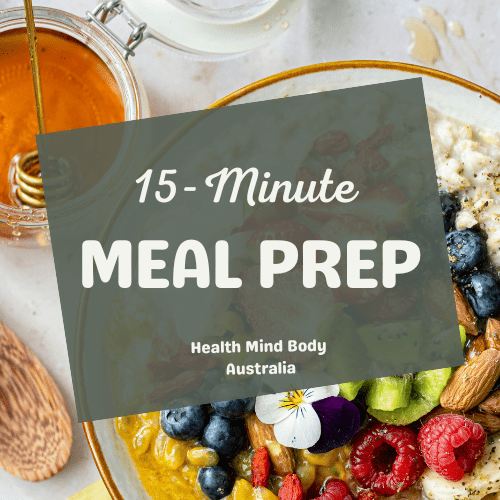

- Accountability in Weight Loss: The Importance of Accountability
- 28 Day Challenge – No Time for Dieting – The Healthy Mummy
- 5 Lessons Learned in Weight Loss: Insights from a Personal Journey
- Plant Based Keto Lifestyle
- Importance of Fitness Routines for Busy Mums

